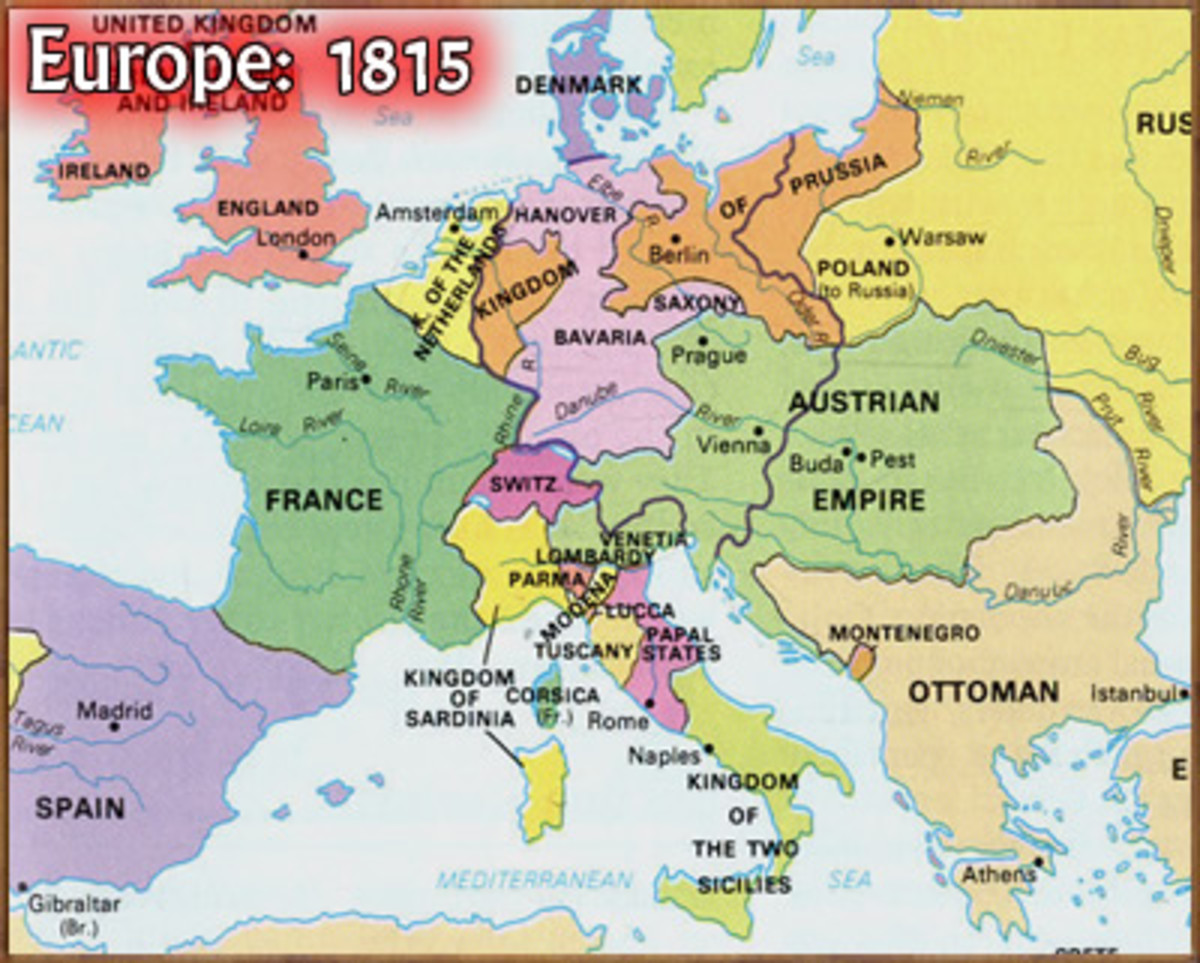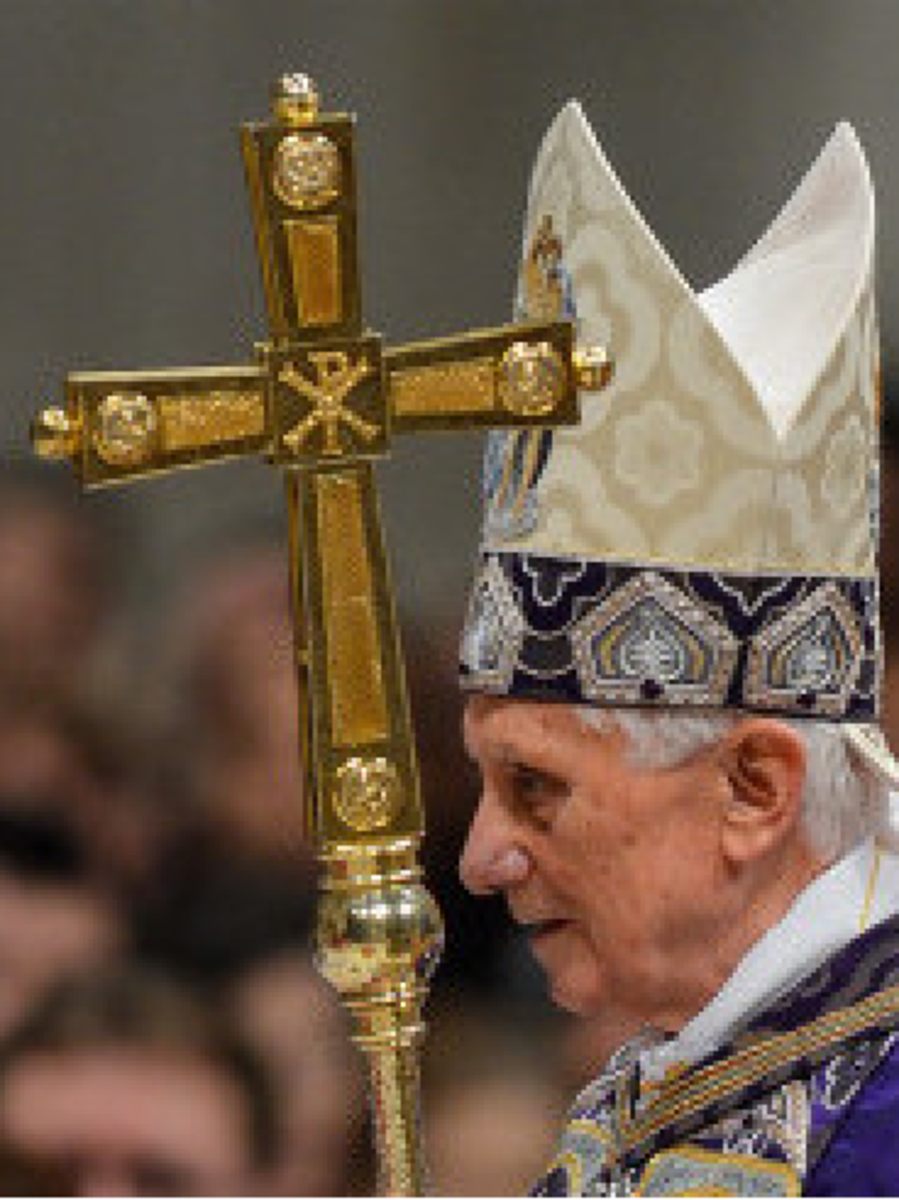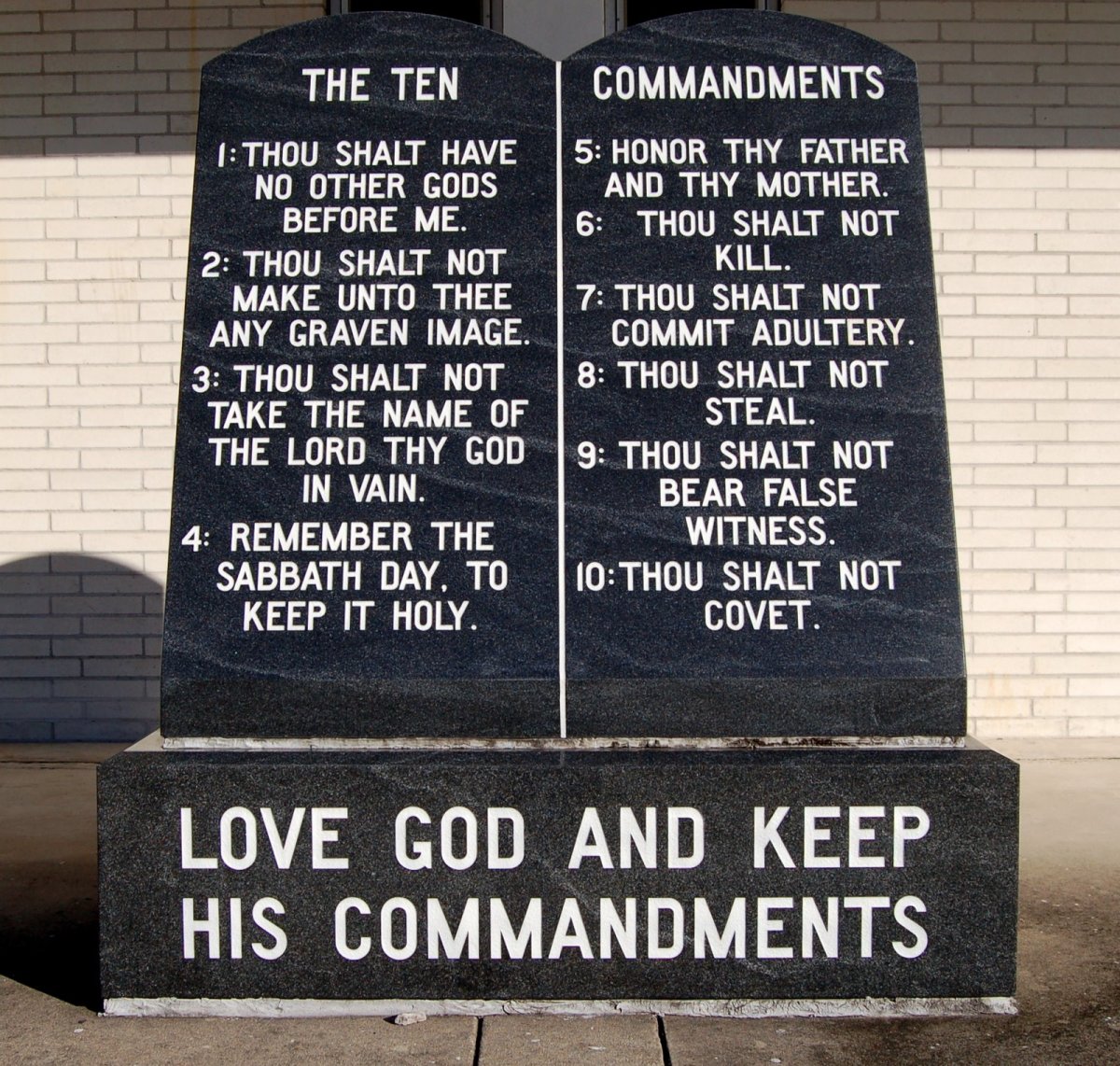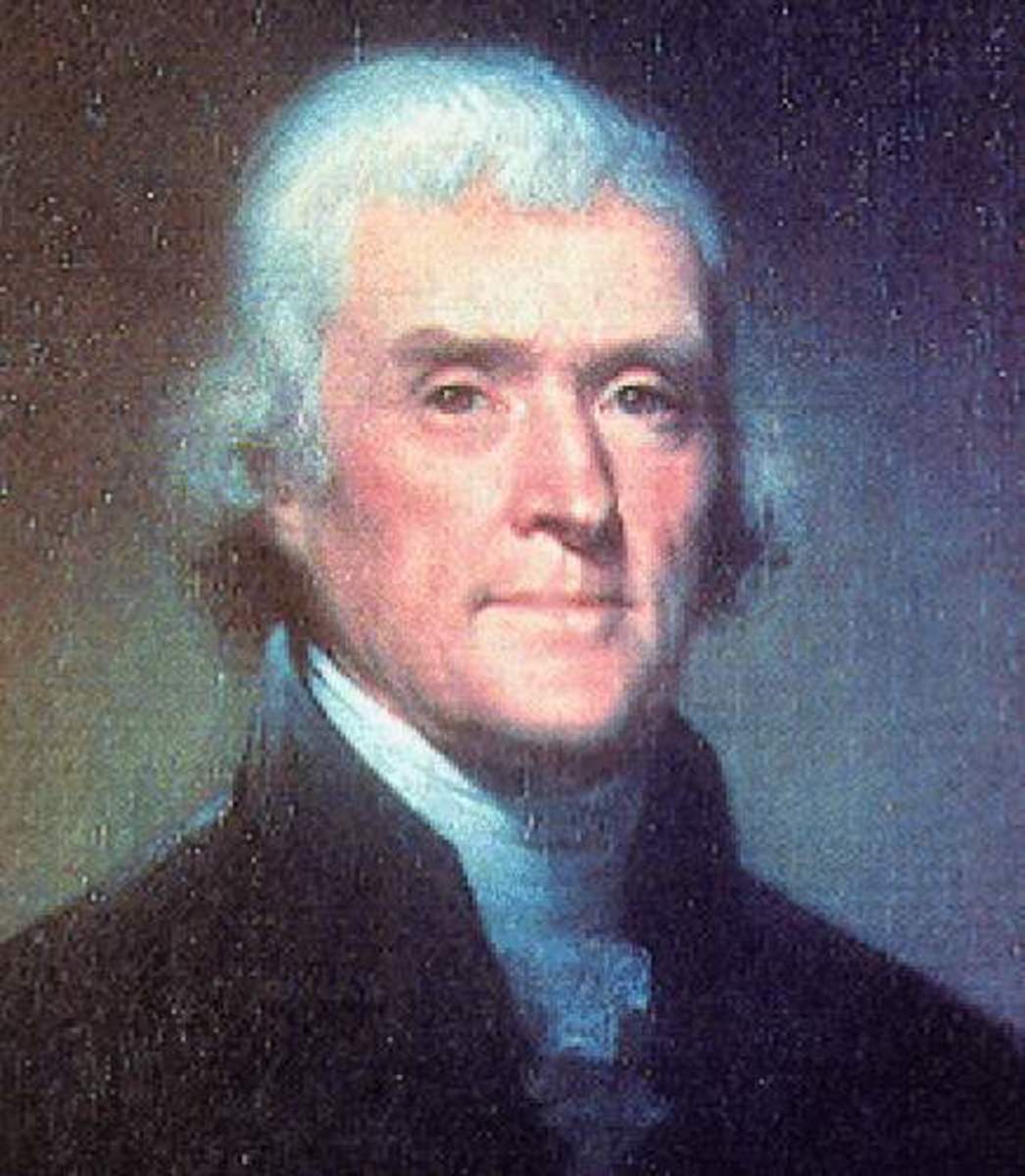Conservatism Is the New Christianity: An Introduction

Conservatism As A Denomination
If you grew up in a red state, you were statistically more likely to be someone who went to church or Sunday school as a kid - either by choice or because a family member took you there. Depending on the denomination of the church you attended, the basic tenets of Christian faith you were taught probably wouldn't be too far off from the staples of Christianity known to most United States citizens - believers and non-believers alike - via the cultural lexicon:The Golden Rule, the Ten Commandments, the Lord's Prayer (in either Olde English or modern English), maybe all 13 of Jesus' disciples (in case you forgot one was replaced, post-Ascension), and if you stretch your memory a little bit, you can name all sixty-six books of the Bible without the aid of a tune in your head. However, in the present-age, an increasing number of people identifying themselves as professing Christians seem to have adopted newer, more unsettling practices in a new denomination to preach from, and one that is steadily becoming more prominent in the eyes of the general public of America: political conservatism.
Conservatism, as practiced by the modern Christian in the US, holds a number of beliefs that are in conflict with core structures of the Bible, and will be discussed point-by-point: the love of guns and near-religious protection of gun ownership; the shutting of our country's borders to needy and downtrodden foreigners whilst also ignoring a large portion of our own country's poorest citizens; the belittlement of the mentally-diseased or handicapped; the lack of serious and consistent effort to preserve what is believed to be a God-given planet; vocal defense of radically fascist ideals; and the unimpaired celebration of the gluttonously rich. This will be the first in a multi-part series exploring and critiquing the titular thesis statement, but before the official discussion begins, the groundwork for how this came to be shall be laid out.
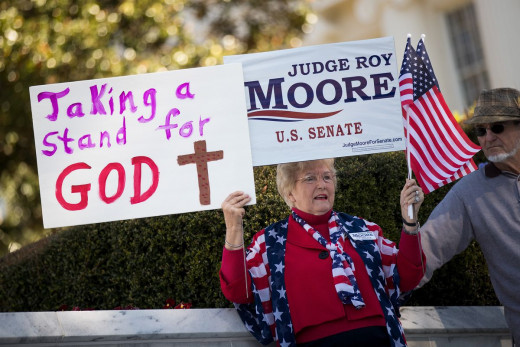
How This Happened, Part 1: The Origins of Christianity
The foundations of Christianity are found in the belief that humanity's origins are the result of an all-powerful, omnipotent, omniscient God who fine-tuned the entirety of the universe as He spoke it into existence; that this God then created man's progenitors: Adam and Eve, and the earliest known humans, and that after they rebelled by "eating of the Tree of Knowledge of Good and Evil," humanity adopted an inherently-flawed state of sinfulness and rebellion. In accordance with God's commands on cultural separation of Hebrews from the rest of the world's nations, Hebrews were told by God to offer bountiful and pure sacrifices regularly, and that He would walk among them so long as they maintained His commands. Fast-forward a few millennia, and the Hebrews - now known as Jews - were in a restless and burdensome state: they had just returned from Babylonian exile, were now under Roman rule, and the class divide was ever growing between the Pharisees and tax collectors (among the richest in Israel at the time) and the growing poor and diseased population. In addition to this, culture wars were erupting near-daily between Jews, Samaritans, Romans, Greeks, and others.
Then, as all was seeming to be lost to the people of Israel, a Messiah promised to them by millennia of prophesies is believed to be born in a small cave outside of Bethlehem, and is witnessed by angels, shepherds, and foreign dignitaries offerings gifts of gold, frankincense, and myrrh. He and his parents survive a mass slaying of Jewish children by hiding out in Egypt, and upon returning, his life begins to lead to questions of His true identity when its rumored that He meets the criteria of the Messiah promised to them. Fast-forward thirty more years, and His name - Jesus of Nazareth - becomes known to the world as He begins His divine campaign of love, compassion, grace, early judgment, sacrifice, humility, serenity, earnestness, steadfastness, and condemnation of those who heartily ignore the teachings of God the Father as old-fashioned or irrelevant.
After a 3-year long mission, filled to the brim with memorable stories, teachings, discipleship, and charitable work, a hierarchical collective of by-the-book religious teachers find Jesus guilty of blasphemy, inciting violence, and other crimes for which He is not guilty. He is executed gruesomely via crucifixion, buried in a tomb, and three days later, is said to have risen again, thus conquering Death itself and paving the new and singular way forward for humanity to once again be reacquainted with God on its originally designed level - by living a life in faith of the life and promises of Jesus, having acknowledged and repented of one's sinful state of being and devoting one's self to shedding past sinful habits and practices with the aid of the Holy Spirit in order to one day either meet God at the end of one's natural life upon dying themselves, or to be raptured by Him at the foretold End of Days - an apocalyptic period of fear, war, famine, death, misery, and ultimate judgment and punishment for those who were told time and again of Jesus and ultimately chose for themselves not to believe.
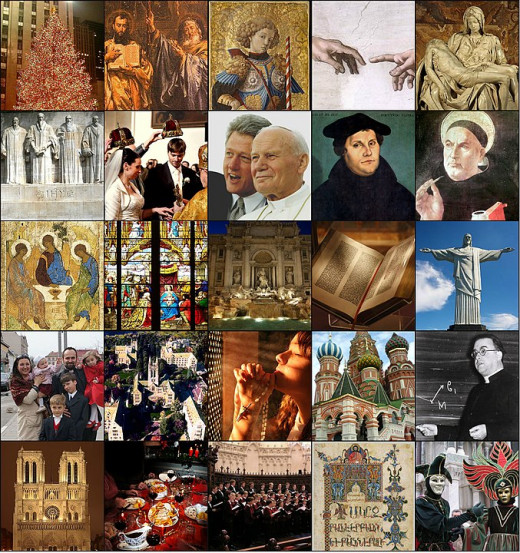
Over the course of history from 33 AD onward, peoples all across the globe hear of Jesus through His 12 Apostles, their disciples, and the disciples that followed, including a former Christian-hunter-turned-greatest-missionary-of-all-time, Paul of Tarsus. Their missions spread the message of the Gospel everywhere from then-Asia Minor to modern-day Germany; from modern-day Russia down to modern-day Sudan. Over the course of the centuries, churches become a staple of world cultures where temples of pantheism once stood, and synagogues arise in equal measure to combat the spreading of the Messianic message despite push-back from the Roman empire and other countries. Then, in 313 AD, the Roman emperor of the time, Constantine, issues what could only be described as the first documented example of intersection between Church and State: The Edict of Milan, which 'legalized' the Christian faith throughout the Roman empire, and permitted freedom of worship of all peoples in the known world at the time.
Centuries pass, and the Catholic church arises from the sea of denominations to become the predominant form of Christian practice, despite various forms or protest from other branches of the faith criticizing the embrace of riches, governmental favors and favoritism, and the seedy undercurrent of behavior stemming from misappropriation of God's laws within the Church, the Diocese, and the Papacy. Over many more centuries, other leaders of the faith take the initiative to branch off and teach specific aspects and understandings of Jesus' message, including Martin Luther (Lutheranism), Huldrych Zwingli (Protestant Reformation), Jan Hus (the Moravian Church), John Calvin (Calvinism), and others.
Presently, Christianity has become increasingly as divided as it is divisive. According to a 1994 study from Messa Community College, there are close to 200 practicing denominations currently preaching within the United States, covering everything from Adventists to Wesleyans, and they cover the political spectrum from alt-right extremists such as the Proud Boys to far-left contrarians identifying as "Christian atheists" (those who claim to believe in Jesus, but not God the Father). One-third of the world's population claims some faith in a figure akin to the Judeo-Christian God, but of that one-third, more than half ignore at least one founding principle of the religion in one form or another by their personal practices and habits.
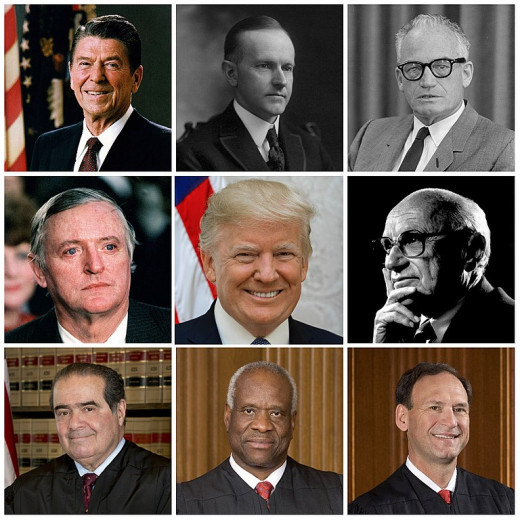
How This Happened, Part 2: The Origins of Conservatism
In his illustrious and thorough video essay, Endnote 3: The Origins of Conservatism, Ian Danskin (known on Youtube as Innuendo Studios) informs his audience that, by all modern accounts, the earliest known introduction of political conservatism's basic tenets were first iterated by philosopher Thomas Hobbes during the English Civil War, followed by Joseph de Maistre and Edmund Burke during the French Revolution. As shown by historical records, both wars were being waged over the idea that noble rule had outlived its usefulness, and that a more democratic solution to the class divide was overdue. This, to the philosophers, was - as Danskin puts it - "repulsive." The echoes of that disdain for what could be argued as a progenitor to egalitarian thinking can still be felt today in modern conservative politics, especially within the past sixty years.
Within modern conservatism, capitalism is revered as a religion rather than the deeply flawed economic system it's been proving to be in recent years. Minority races are depicted as solely negative stereotypes by right-leaning media, the Earth's precious habitats, resources, and animal life are seen as nothing more than commodities and stepping stones to be tread upon on the path to future riches, and the politically entrenched believe that it is their right to dictate life's rules for everyone, instead of working with their opponents on a consensus option that works best for the majority, rather than a plurality. The few utterly dominate the many, and not in a healthy or mutually-beneficial pattern that would best serve the country; instead best serving the needs of mega-corporations, lobbyists, and the wealthiest of the wealthy.
Conservatism, for all intents and purposes, is concerned with one thing, and one thing only - the consolidation of financial and political power for conservatives, and removal of opportunities and methods for non-conservative challengers to fight for that power. Nowhere can this be made more evident than in the current administration's appointees to various positions within the leadership, their legislative agenda of the past three-and-a-half years, and the unruly behavior of the party's current leader, who no conservative dare challenge; lest they lose their own puny modicum of power afforded solely by falling in line.
From The How, To The Now-What
Having delved into the shallow end of the pool that are the histories of Christianity as a religion, and conservatism as a political movement, it is now time to venture forward into the present, and use what we can observe to subtly predict small portions of the future. In the official Part 1 of this series, we shall explore the morally-grey-at-best arguments of conservative gun owners, their vehement defense of a weapon forged solely to kill (be it for sport or for more insidious intent), how this defense ties into the presumed-negative racial relations between white conservatives and non-white people as a whole, and how the previously-mentioned arguments conflict with the inherently Christian beliefs of "pray for your enemies," "love thy neighbor," and perhaps most obviously, "thou shalt not kill."
© 2020 Nicholas Gallagher

